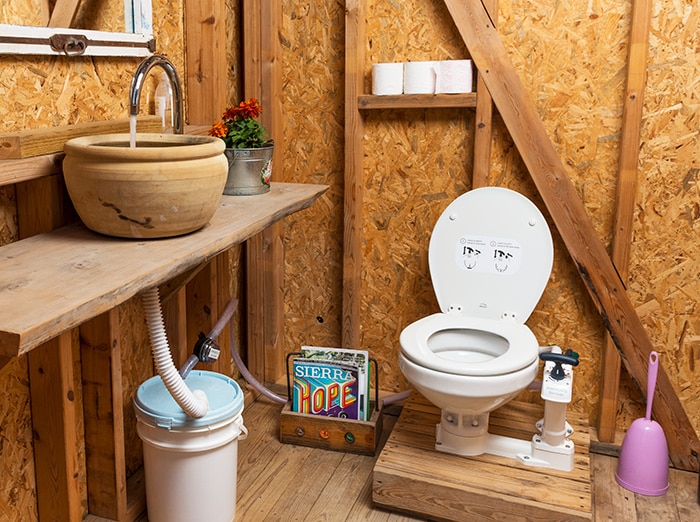Composting toilets have emerged as an innovative and environmentally conscious solution for sustainable sanitation. By harnessing the natural process of decomposition, these toilets offer a way to manage human waste while minimizing environmental impact. In this article, we will explore the benefits and functionality of composting toilets and their role in promoting a greener future.
How Composting Toilets Work
Composting toilets utilize the principles of nature to break down human waste into nutrient-rich compost. They operate without the need for water or external plumbing, making them suitable for a variety of settings, including remote areas, off-grid homes, and eco-friendly communities. The process can be summarized as follows:
- Collection: Human waste, known as «humanure,» is deposited into a specially designed toilet bowl or chamber.
- Decomposition: Inside the toilet system, organic matter, such as sawdust or wood chips, is added to aid in the decomposition process. This helps to control odor and provide a carbon source.
- Microbial Action: Beneficial bacteria and microorganisms naturally present in the waste begin breaking it down through aerobic decomposition, which requires oxygen.
- Composting: Over time, the waste is transformed into compost through a combination of microbial activity, heat, and time. This process can take several months to a year, depending on the conditions and system design.
Advantages of Composting Toilets
Composting toilets offer several notable advantages over traditional flush toilets and septic systems:
- Water Conservation: Composting toilets eliminate the need for water, which is a precious resource in many regions. By using these toilets, households can significantly reduce their water consumption.
- Nutrient Recycling: The end product of composting toilets is a nutrient-rich compost that can be used as a valuable resource for gardening and agriculture. This closed-loop system ensures that valuable nutrients are returned to the soil, promoting sustainable food production.
- Cost Savings: Composting toilets require minimal maintenance and eliminate the need for costly septic system installations and regular pumping. This can lead to long-term cost savings for homeowners and communities.
- Environmental Benefits: By avoiding the use of water and reducing the load on centralized wastewater treatment systems, composting toilets contribute to the conservation of water resources and reduce pollution of natural water bodies.
- Flexibility and Versatility: Composting toilets can be installed in a wide range of settings, from individual homes to public facilities and outdoor events. Their adaptability makes them a practical choice for various applications.
Considerations and Best Practices
To ensure the effective and safe use of composting toilets, certain considerations and best practices should be followed:
- Proper Maintenance: Regular monitoring and maintenance of composting toilet systems are essential to optimize their performance. This includes managing the carbon-to-nitrogen ratio, ensuring proper ventilation, and monitoring composting temperatures.
- Composting Toilet Design: There are various designs available, including self-contained units, central systems, and batch systems. Choosing the appropriate design depends on factors such as space availability, intended use, and local regulations.
- Local Regulations and Permits: Before installing a composting toilet, it is important to familiarize oneself with local regulations and obtain any necessary permits or approvals to ensure compliance with health and sanitation standards.
- Education and Awareness: Promoting education and awareness about composting toilets can help dispel myths and misconceptions surrounding their use. Providing information on their benefits and functionality encourages wider adoption and acceptance.
Conclusion:
Composting toilets offer an eco-friendly and sustainable solution to sanitation challenges. By utilizing natural processes, these toilets conserve water, recycle nutrients, and reduce environmental impact. Their versatility and adaptability make them a viable option for various settings, while proper maintenance and adherence to best practices ensure their effective and safe operation. As we strive for a greener future, composting toilets play a crucial role in promoting sustainable sanitation practices.

